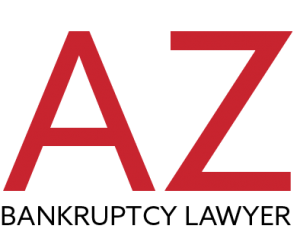The False Claims Act (FCA) is a powerful federal law designed to combat fraud against the government — and it applies across a wide range of industries where federal funds are spent. While fraud can occur anywhere, some sectors are more frequently targeted under the FCA due to the size of government contracts or the complexity of billing systems.
If you’re considering blowing the whistle on fraud, knowing which industries are commonly involved can help you understand where FCA claims arise and what types of misconduct tend to occur. Thank you to the Law Offices of Darth M. Newman for helping us unpack this challenging topic.
1. Healthcare
Healthcare is the largest and most active sector for FCA litigation. Federal programs like Medicare, Medicaid, and the Veterans Health Administration funnel hundreds of billions annually to providers, hospitals, pharmaceutical companies, and medical device manufacturers.
Common FCA violations in healthcare include:
- Billing for services not rendered or unnecessary procedures
- Upcoding (billing for more expensive services than performed)
- Kickbacks and illegal referrals
- Off-label drug marketing leading to false claims
- Falsifying patient records or certifications to obtain reimbursement
Healthcare fraud cases often result in multi-million or even billion-dollar settlements, reflecting the enormous scope of government spending in this sector.
2. Defense Contracting
The Department of Defense spends vast sums on contractors supplying weapons, equipment, logistics, and services. This industry is a frequent target for FCA cases involving:
- Overbilling for materials or labor
- Delivering substandard or defective goods
- Falsifying testing or inspection results
- Violating contract terms or compliance certifications
High-profile defense fraud cases have exposed wasteful spending and led to significant government recoveries.
3. Government Procurement And Contracting
Beyond defense, many federal agencies contract with private companies for a range of goods and services — from IT and consulting to construction and facilities management.
FCA cases in this space may involve:
- False certifications of compliance with contract requirements
- Misrepresenting small business status or eligibility for set-aside contracts
- Inflating hours worked or deliverables provided
- Using substandard materials or unauthorized subcontractors
The complex web of subcontracting and compliance makes this a common area for false claims.
4. Education And Research
Federal funds support many education institutions and research programs. FCA violations here include:
- Misuse of grant money for unapproved purposes
- Falsifying data or progress reports on federally funded research
- Inflating expenses or billing for non-existent personnel or services
Whistleblowers in academia and research settings play a critical role in exposing grant fraud that undermines taxpayer investment in innovation and education.
5. Financial Services And Disaster Relief
Programs like the Paycheck Protection Program (PPP) and Economic Injury Disaster Loans (EIDL), especially during the COVID-19 pandemic, have brought fraud risk to the financial sector.
Common FCA claims include:
- Fraudulent loan applications claiming false eligibility or inflated payroll numbers
- Misappropriation of relief funds
- False certifications of compliance with program rules
Given the urgency and volume of these programs, the government is actively pursuing FCA cases to recover misused funds.
6. Energy And Environmental
Federal subsidies and contracts in energy and environmental projects are also subject to FCA enforcement. Fraudulent conduct may involve:
- Misrepresenting compliance with environmental regulations
- Falsifying data related to energy production or emissions
- Overcharging for federally subsidized projects or equipment
This sector’s specialized nature often requires whistleblowers with technical expertise to identify fraud.
Why Understanding Industry-Specific FCA Risks Matters
Each industry has unique regulations, billing codes, and contract requirements. As a whistleblower, understanding the typical FCA violations in your field helps:
- Identify potential fraud more accurately
- Gather relevant evidence effectively
- Work with a false claims act lawyer who specializes in your industry’s FCA cases
The False Claims Act protects taxpayer money across a wide spectrum of industries — from hospitals to defense contractors to universities and financial institutions. Fraud can happen anywhere federal funds are involved, but the industries listed above are especially vulnerable due to the volume and complexity of government spending.
If you have knowledge of wrongdoing in your workplace or industry, don’t hesitate to seek legal advice. Experienced FCA attorneys can help you evaluate your case, preserve evidence, and guide you through the complex legal process of filing a qui tam lawsuit.
At our firm, we’re committed to helping whistleblowers bring fraud to light, recover government funds, and earn the protections and rewards they deserve.

